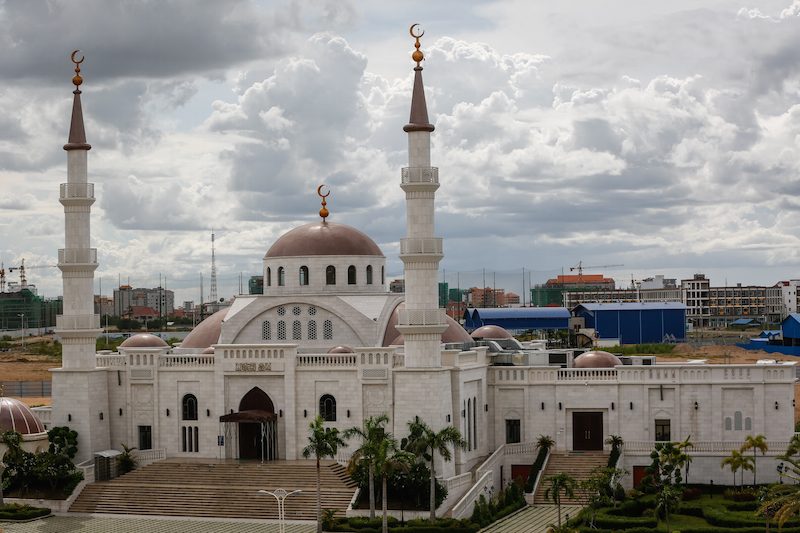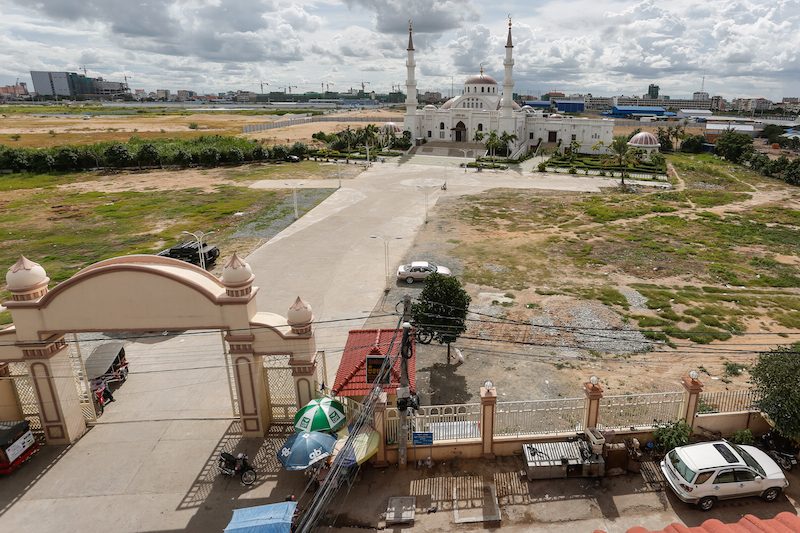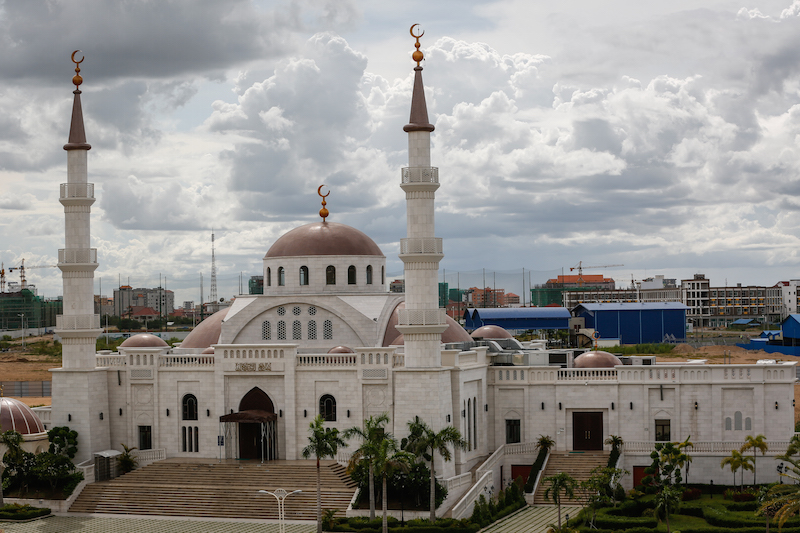Phnom Penh governor Pa Socheatvong on Wednesday defended a controversial planned road that would run through the Al-Serkal Mosque compound near the site of the now filled-in Boeng Kak lake, saying that he would ensure that nobody lost land without receiving alternate plots.
The city’s Muslim community has been divided by plans for the road through the $2.8 million mosque’s land, with Social Affairs Ministry official Ahmad Yahya accusing Labor Ministry counterpart Othsman Hassan of helping mastermind the plan in exchange for a land swap.

At a forum held at the mosque on Wednesday, Mr. Socheatvong told those assembled, including local residents, that the new thoroughfare would be a key part of developing the former lake.
“You can imagine, anywhere when we start to build a road, we develop it and there are increases in the [land] prices immediately,” Mr. Socheatvong told the gathering of about 300 people. “Now we are in the center of the city, so why don’t we manage it better?”
The governor rejected the idea that the mosque might be negatively affected by the road. He said any nearby buildings or houses forced to give up land for the road would receive the same amount of land back from the state in compensation.
“I think, for example, that when we build the road and it affects your house, I will pay back the land size. For example, if there’s 70 square meters, and the road takes 20 square meters, I will give [land] back to make it the same size of 70 square meters,” he said.
“No one will lose,” he added. “We will lay out the mosque [complex] to look better. You will get the same amount of land. We will just have changed its shape.”
Mr. Yahya, who was at the forum, said that the complaint of many worshipers at Al-Serkal Mosque was not just that the mosque would lose land, but that the busy road would end up being built so close to the site that construction and traffic would interrupt services.

“He said the plan was to build the road 50 meters from the mosque’s stairs,” Mr. Yahya said of Mr. Socheatvong’s speech, adding that he would continue to speak out against the plans.
“The opinion of most Muslims is not that we are against the development of the Boeng Kak area, but please just build the road along the [mosque compound’s] fence,” he said. “We do not want it so close to the mosque that we cannot worship.”
Heng Mom, a 46-year-old resident of Boeng Kak, and one of the original protesters against the filling in of the lake in the late 2000s, which led to thousands of families being evicted, said she hoped Mr. Socheatvong would stick to his promise.
“We are not against the development project, but if it affects the villagers they have to provide suitable compensation or other land—only then will it be accepted,” she said.
“If there’s not suitable compensation, we will not be quiet. We will protest.”




